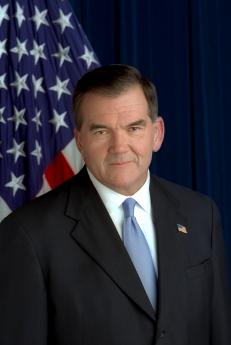Related Topics
Right Angle Club: 2015
The tenth year of this annal, the ninety-third for the club. Because its author spent much of the past year on health economics, a summary of this topic takes up a third of this volume. The 1980 book now sells on Amazon for three times its original price, so be warned.
Pipelines to Philadelphia?

|
| Governor Tom Ridge |
Since former Governor Tom Ridge stopped being in charge of Homeland Security, he has been running a lobbying organization in Washington. So when we asked him to discuss gas pipelines to Philadelphia, he sent us Ned Rauch-Manino. Ned promptly appeared, and made a very good case we ought to have a pipeline or two. One pipeline would run from the Marcellus shale area to Philadelphia, carrying raw material from the gas fields to the old refineries at Marcus Hook. And the other would run from the Atlantic Ocean south of the Mullica or Greater Egg Harbor Rivers to Philadelphia, carrying liquified natural gas in ships built in Germany, coming from, well, he didn't mention where it was coming from. But it would be a second source of oil or gas, running up along the banks of the creek to Marcus Hook, saving a couple of hundred miles of travel. And incidentally putting those LNG ships next to the pine barrens of New Jersey, rather than right next to the city.

|
| Homeland Security |
According to Ned, the liquified gas isn't much of a hazard, because it would burn faster than its ice could melt, so perhaps the shortened voyage or the navigation up the Delaware River are more important issues. While such LNG might be coming from Africa or the Middle East, a more likely source would be South America. The kind of crude oil produced in Latin America will not suit very many of the American refineries, so new ones would likely have to be built. In the case of oil from the Arabian Gulf, the raw material is already suitable, but much of the present commotion is due to the Arabs using some of their own money to build refineries of their own. And much of the Arab civil war is an Arabian civil war. The only other major source of oil from that direction comes from the former Soviet Union. However, France is known to be sitting on top of a lot of oil and gas, which they leave unexploited for environmental reasons. In fact, the whole world seems to have a lot of unexploited energy sources, so the main issues are investment and know-how, not discoveries. Meanwhile, the Russians are doing their best to explore the Arctic basin. These oil guys are all big-time gamblers by their nature, so it wouldn't be surprising to find a lot of capacity is being built, just in case something turns up.
To return to the potential pipeline across Central Pennsylvania, the environmental issues look much different. Refineries were first built around Marcus Hook, in order to provide a return cargo for the railroads to the West, during the Nineteenth century. The New York and Baltimore competitors had to return empty, so the return cargo provided a major advantage. Sun Oil, which was the major pioneer of this effort, has since sold the refineries to other operators, who have not greatly prospered, however. Until that is, shale fracking was discovered, and Warren Buffett bought the railroad complex. If you go down the Schuylkill on either the East or West banks or the Art Museum, you find there has long been a network of rail lines hiding behind the bushes. Nowadays, those rails are filled with lines of brand-new tank cars. Freight runs at night, so most of us haven't noticed the oil trains. But they are there and they stretch for miles. No doubt, the rail lines will suffer if pipelines are built, but right now those railroads are running enormous profits. And they are right there, just a few feet from thousands of people. We haven't had a major fire or derailment yet, but other cities have, and the threat is a real one. This subject is definitely one to be continued.
Originally published: Sunday, September 06, 2015; most-recently modified: Friday, May 31, 2019